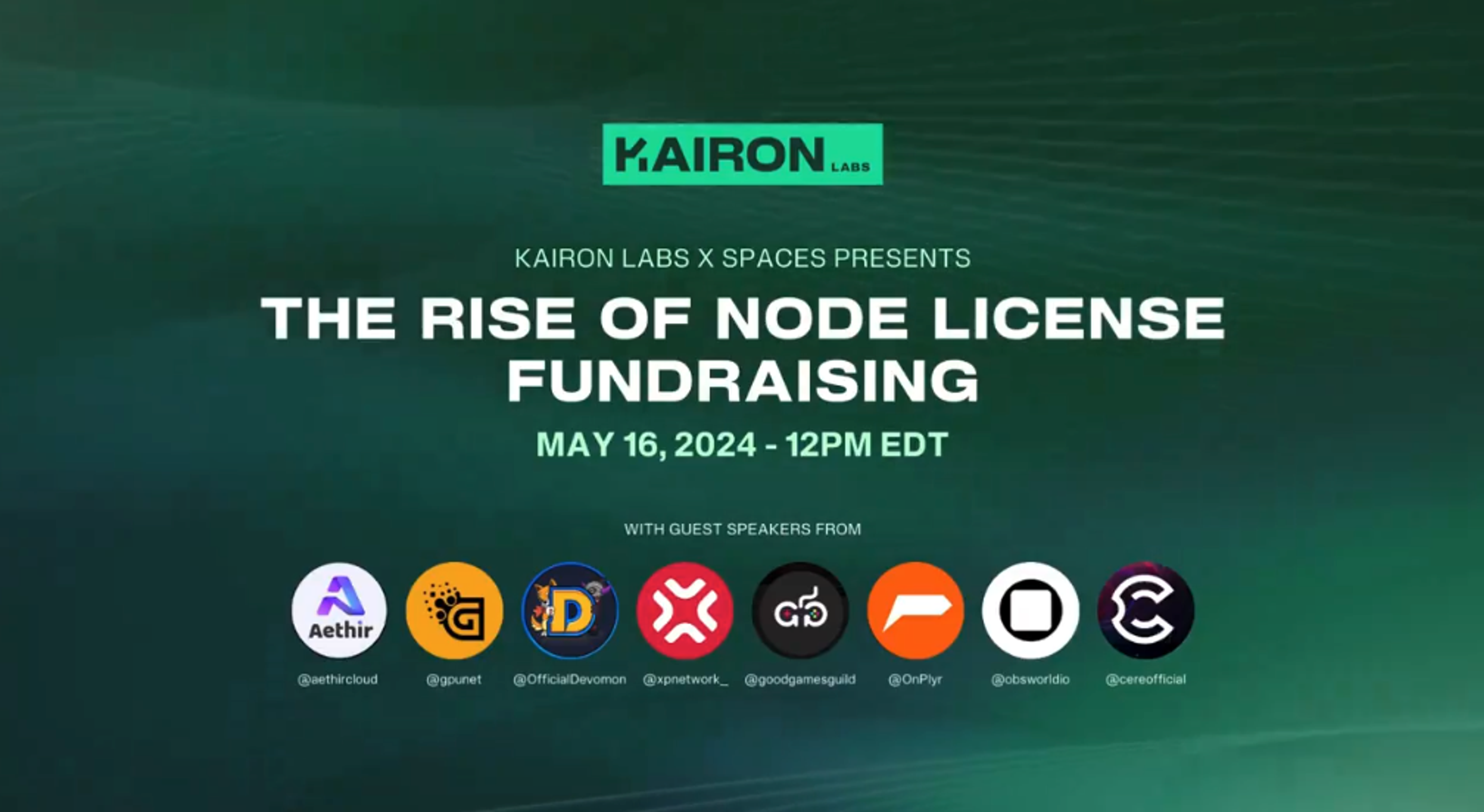
The Growing Trend of Node License Sales: An In-Depth Analysis
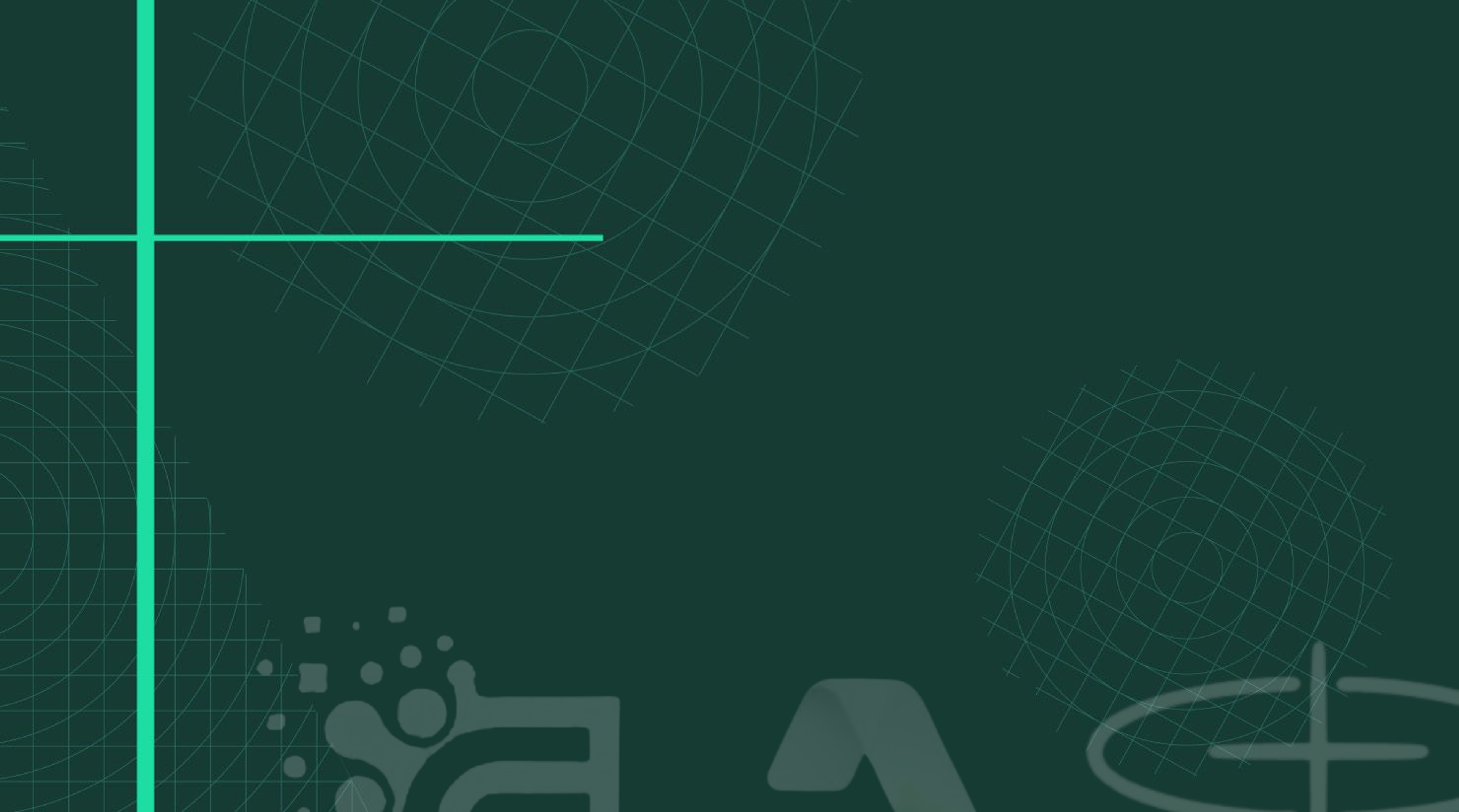
Over the years, we have heard names like IEO (Initial Exchange Offering), IGO (Initial Game Offering), and even the most common nowadays, IDO (Initial DEx Offering), as a way to generate additional funding support for the project. As the rise of innovative fundraising becomes a constant driving force in crypto, we recently recognized the rising trend in Node License Sales, a new method of investor fundraising for crypto projects.
With the success of Aethir’s checker node sale and Sophon Blockchain’s node sale, which amounted to $60M overnight, it makes sense why many other projects are finding great potential in this method.
What is a Node Sale?
Node sales are a relatively new concept in the crypto space. Still in its early stages, a node sale involves distributing licenses that allow participants to operate nodes within a network, contributing to its infrastructure and security while earning incentives, such as discounts, free tokens, and tiered commissions.
This dual benefit of decentralization and potential token rewards has made node sales an attractive fundraising mechanism. DeFi protocols like Impossible Finance help with node sales. In 2021, Impossible Finance raised $7 million in a seed funding round.
In 2024 alone, market caps rose significantly with node license sales. Here’s a comparison guide:
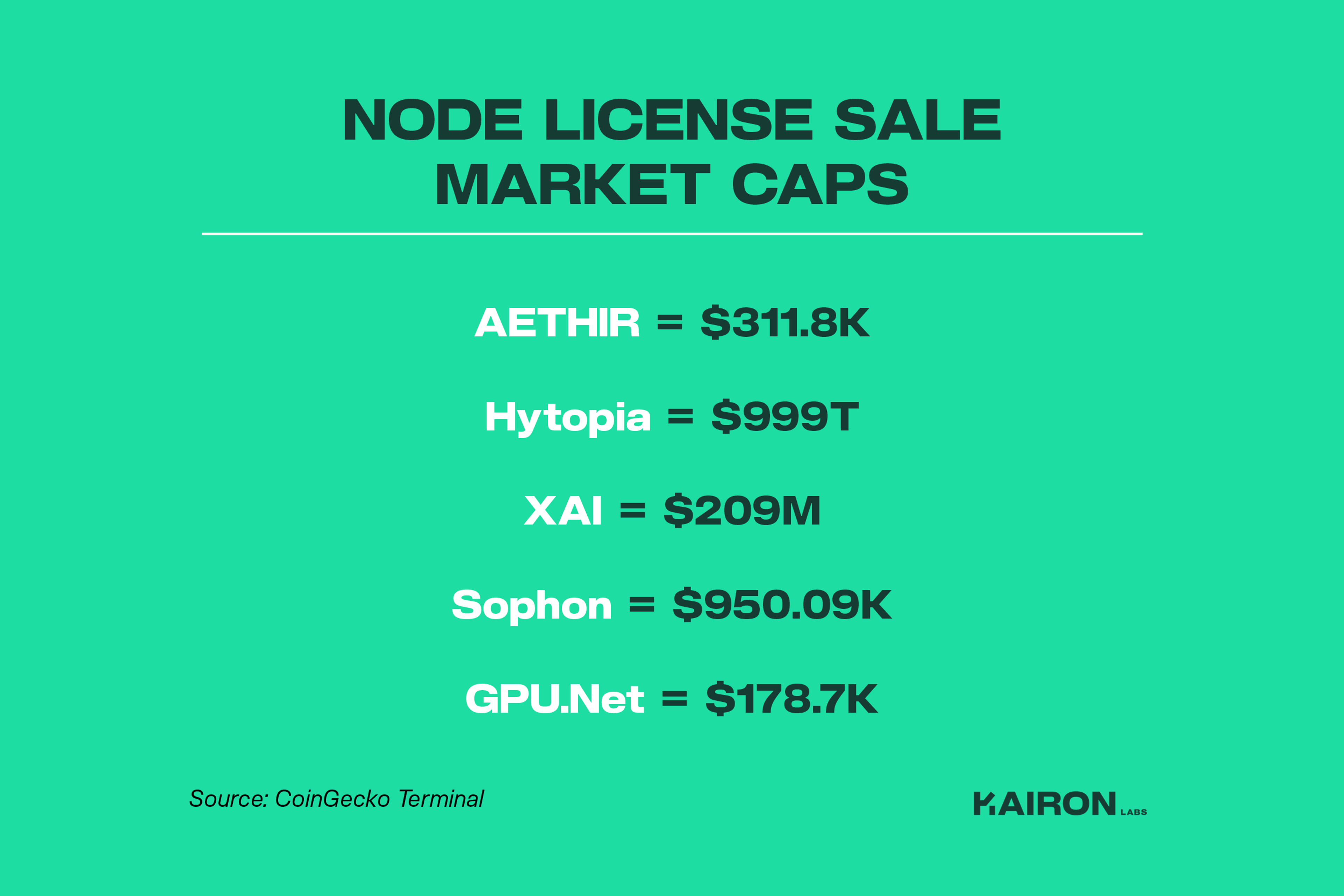
How Do Node License Sales Work?
Now that we know what node license sales are in the context of crypto, let’s try to understand how they generally work. We break down the process based on insights from Impossible Finance.
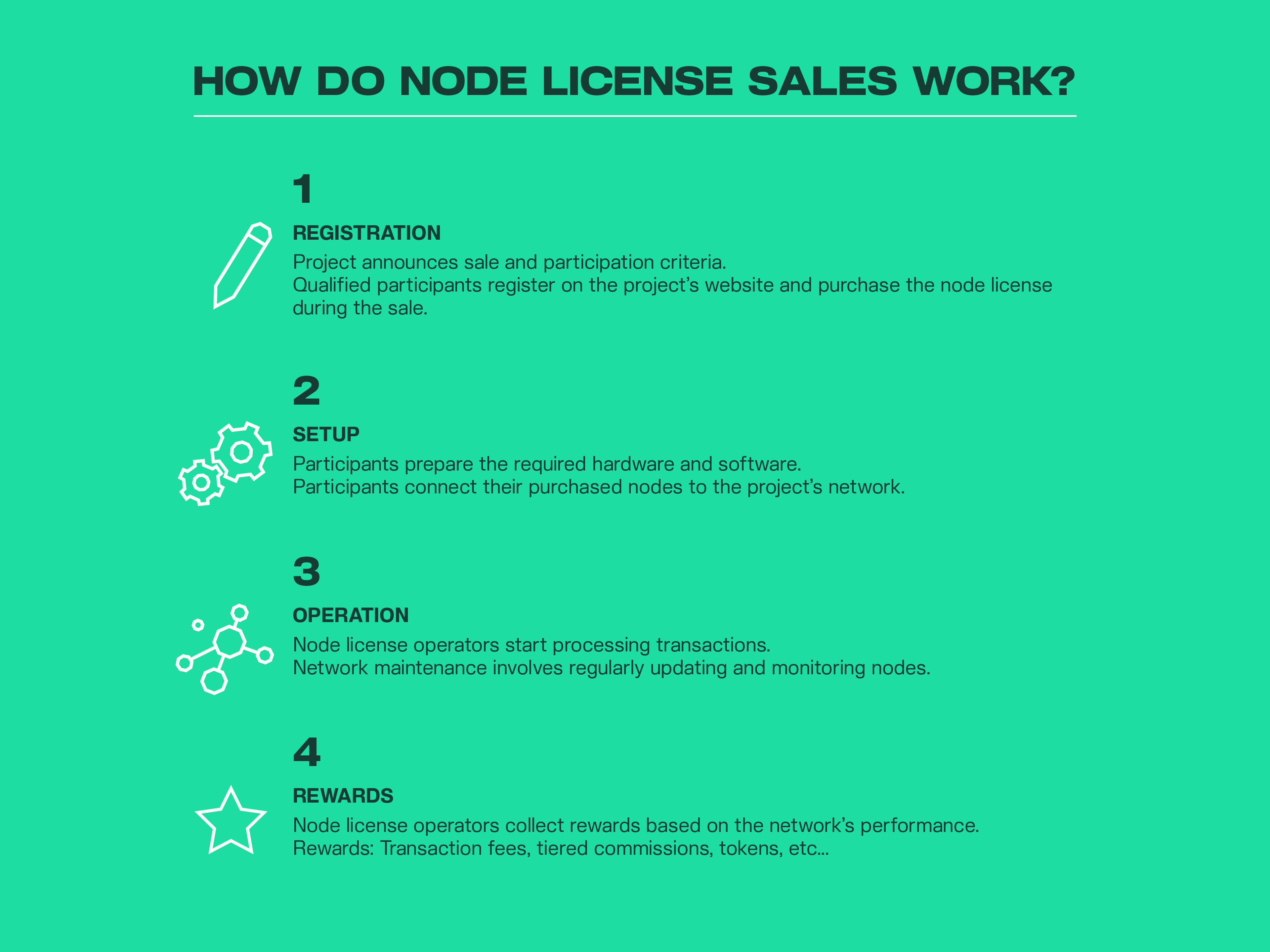
Registration
The process begins with the project announcing the sale and detailing the participation criteria. Qualified participants must register on the project's website and purchase the node license during the specified sale period. Only eligible participants who meet the necessary technical and financial requirements can acquire the licenses.
Setup
Once the license is purchased, participants must prepare the required hardware and software. This involves setting up the necessary machinery and installing relevant software to ensure smooth operation. Participants then connect their purchased nodes to the project’s network, integrating them into the broader ecosystem.
Operation
With the nodes connected, operators start processing transactions within the network. This phase requires continuous engagement, as network maintenance involves regularly updating and monitoring the nodes to ensure optimal performance and security.
Rewards
Node license holders receive rewards based on the network's performance as an incentive. These rewards can come in various forms, including transaction fees, tiered commissions, and tokens. By actively participating and maintaining their nodes, operators can maximize their earnings while contributing to the network’s stability and efficiency.
As Aethir’s Mark Rydon puts it, node licenses entitle participants:
- The ownership of the nodes
- The right to work on the project
- A more solid place in the community
Node License Fundraising and DePins
The first to use node license fundraising seems to be from Decentralized Private Infrastructure (DePIN) solutions. These solutions rely on important trends in blockchain technology.
As stakeholders seek more secure frameworks for decentralized networks, DePINs emerge as pivotal innovations. Why? These solutions address critical privacy, scalability, and governance challenges, reinforcing blockchain ecosystems.
More companies are using node license sales to raise funds, moving towards sustainable and community-focused infrastructure models. This could indicate a new approach to how blockchain projects run from conception to implementation.
Success Stories:
zkSync network, Sophon, and AI-focused projects, Aethir and GPU.net, are prime examples of DePINs that quickly utilize nodes as a project fundraising tool. The results were successful enough to usher in a new dawn in tokenomics. Let’s see below:
Aethir
With over 66,000 Checker Node licenses sold, amounting to over 42,000 ETH (USD130M), Aethir has taken a step towards complete decentralization. This achievement was made possible by distributing sold nodes to more than 20,000 buyers globally, decentralizing control over Aethir's GPU cloud infrastructure.
Partnerships were key to Aethir's node sale success. Over 100 collaborators worked together to decentralize control of its GPU cloud ecosystem. Community members received the first batch of Checker Node NFT licenses on April 12. With approximately 35,000 Checker Node licenses available, Aethir continues to chart its course toward democratized access.

Source: Dune
Sophon
Sophon recently concluded a node sale at an impressive $60 million. In March 2024, the platform received $10 million in investments during a funding round led by Paper Ventures and Maven 11. This recent achievement builds on that success. Sophon aims to catch more attention in the entertainment industry upon its launch in Q3 2024.
The node sale shows a new way of fundraising in the blockchain industry, moving away from traditional methods. Sophon successfully sold 121,000 nodes out of 200,000, with prices starting at 0.0813 wrapped ether (wETH). This smart move brings in money and expands the project's network, setting the stage for a strong ecosystem once the project begins.
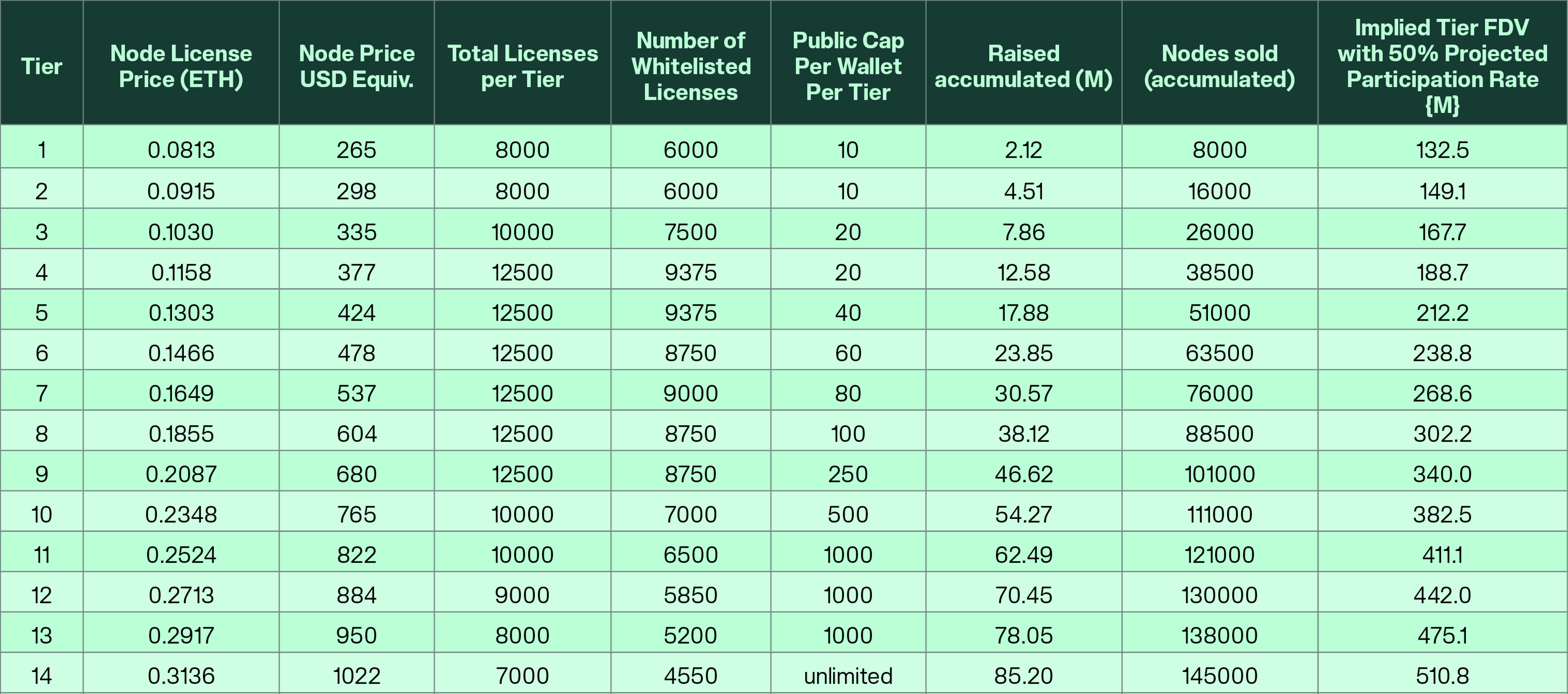
See full pricing at: Sophon
Investors participating in the sale receive ERC-721 tokens, granting them access to a portion of Sophon's token supply. A staggered distribution plan ensures sustained investor engagement over 36 months post-launch.
GPU.NET
GPU.NET has successfully launched an innovative node sale program that significantly contributes to decentralizing its GPU network while raising substantial funds to develop its ecosystem further.
The Node Sale for GPU.NET launched on April 5, 2024. It featured 15 tiers, with the first six completely sold out. The sale has raised at least 1800 ETH, implying a fully diluted valuation (FDV) of over $20 million.
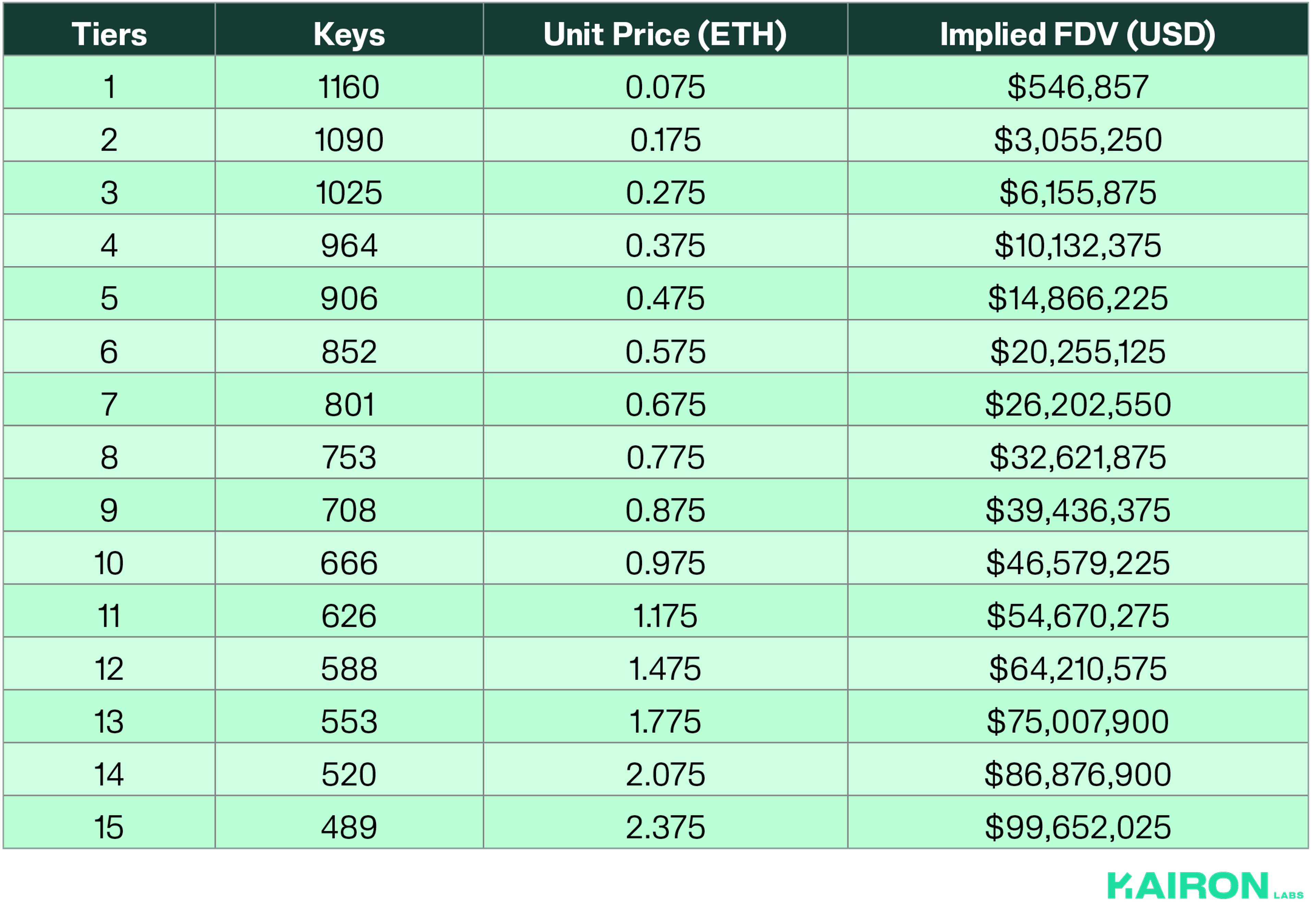
Source: GPU.Net
The node program receives 30% of the total GPU token supply, equivalent to 200 million tokens. During the presales for tiers 5 and 7, GPU.NET engaged with KOL and VC to secure strategic partnerships and investments.
What Does the Market Think About Node License Sales?
Investors and the market are optimistic about node license sales. They view them as stable and having long-term potential in decentralized networks. The broader market's push toward decentralization also fuels this sentiment.
Investors are increasingly wary of centralized platforms because of concerns over control and security. Node license sales help establish control among more people, making the network more secure and trustworthy.
As blockchain technology advances, there will probably be continued interest and growth in node license sales. This is because they can combine fundraising with infrastructure development in a unique way.
Comparing Node License Sales Performance with Other Fundraising Methods
Node license sales offer distinct advantages compared to traditional fundraising methods such as ICO and public sales:
- Long-Term Engagement: Node operators must keep their nodes running to help the network stay stable over time. This contrasts traditional sales, where token holders might sell their tokens immediately for short-term gains.
- Market Performance: Projects like Aethir have shown that node sales can significantly boost market performance and project valuation. Aethir’s implied FDV reached over $2.7 billion before its TGE.
You must consider several key differences and performance metrics when comparing node license sales to other blockchain fundraising methods. Traditional methods, like ICOs and STOs, raise capital by offering tokens representing utility or equity in the asset.
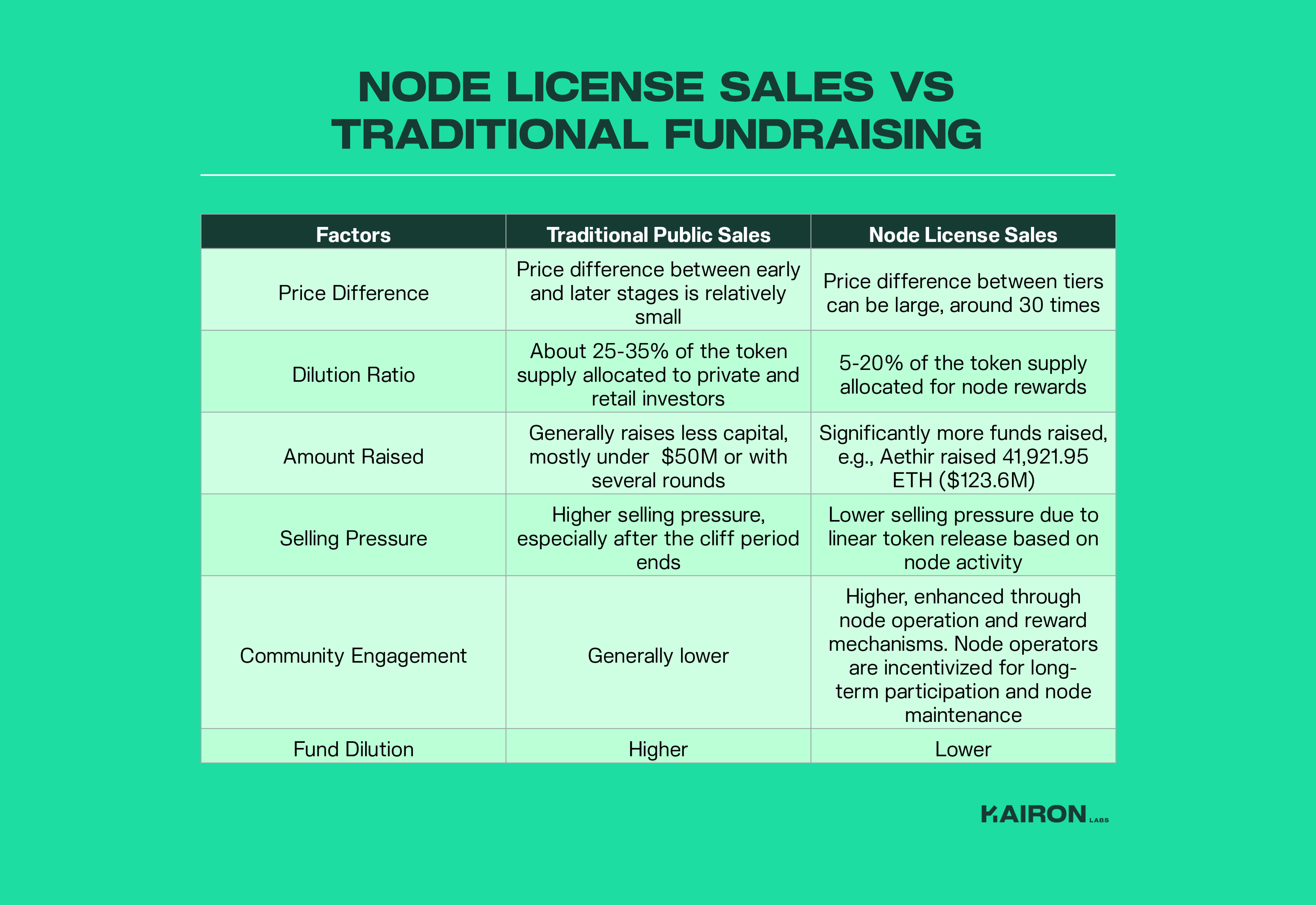
ICOs, which peaked in popularity around 2017, raised significant capital but often faced regulatory scrutiny and volatility issues. According to Cointelegraph, ICOs raised over $6 billion in 2017 alone, but many projects failed to deliver on their promises, leading to a decline in investor confidence.
In contrast, node license sales have demonstrated a more sustainable model by integrating capital raising with network growth. For instance, while ICOs often lead to speculative trading and price volatility, node license sales encourage long-term investment by granting participants operational roles within the network. Aethir's node sale, which raised over 29,000 ETH, is a prime example of this model's success. The sale secured substantial funding and decentralized the network infrastructure by distributing node licenses to over 20,000 buyers.
STOs offer a regulated way to raise funds, following securities laws. However, this can sometimes slow down the process and limit flexibility.
Node license sales blend STO rules with ICO community involvement, providing a balanced approach different from other methods. This model can attract a wider range of investors, from individuals to large investors. This helps to strengthen and stabilize the market.
The comparative assessment suggests that node license sales offer a compelling alternative. They address many pitfalls of previous fundraising methods while promoting network decentralization and sustainability.
ROI in Node License Sales
ROI in node license sales can be substantial, especially for early participants. The following factors primarily influence earnings:
- Node Cost: Lower-tier nodes are generally cheaper and offer quicker breakeven times than higher-tier nodes.
- Reward Allocation: The percentage of token supply allocated for node rewards and the number of active nodes directly impact earnings.
Additionally, more funds can typically be raised through node sales. For example, Aethir has raised over $123M, with an implied FDV of $2.73B before TGE. Render, a leading DePIN industry player, raised less than $50M during its fundraising stage, with an initial FDV of only $133.02M.
Investors typically break even in around 15 months. This is true even if we don't consider the potential future growth of the Aethir token price. When Aethir starts, the token price will increase. This means it will take less time to recoup your investment. As a result, you will see a better return on investment.
Are Node License Sales Ready to Replace Token Fundraising?
In a Twitter space hosted by Kairon Labs, Mark Rydon, co-founder of Aethir, says it’s still too early to tell. "I don't necessarily think it's a primary means of fundraising, but it is a primary means of doing.
It's onboarding high-conviction users and interior ecosystems, and I think that's a real power because the users know they're not buying tokens, but the right to work, which will reward them over long-term cycles
Node license sales are a novel approach to blockchain fundraising. Platforms like Aethir create a foundation for more active and committed communities by emphasizing the rights and responsibilities that come with node licenses. This method fosters a deeper alignment between the project's goals and its participants' interests, potentially leading to more robust networks.
As of now, node license sales are far from ready to face off with traditional fundraising methods. However, as the blockchain industry continues to explore and refine such innovative strategies, the success of node license sales may signal a move towards more sustainable and participatory models of growth and development in the decentralized ecosystem.
References:
- https://dune.com/sohwak_archive/aethir
- https://docs.aethir.com/aethir-network/architecture-design
- https://gam3s.gg/news/hytopia-l2-hychain-node-sale/
- https://nodes.hychain.com/
- https://docs.hychain.com/docs/what-are-node-keys
- https://dune.com/sohwak/xai-node-key-purchases
- https://xai-foundation.gitbook.io/xai-network/xai-blockchain/sentry-nodes-explained/how-do-sentry-nodes-work
- https://dune.com/sohwak_archive/sophon-node-sales
- https://medium.com/@ALIENXchain/guild-to-ai-node-sales-and-aix-node-mining-rewards-73db0417c54c
- https://alienxchain.io/ainode
- https://medium.com/@ALIENXchain/alienx-powering-nft-gaming-mass-adoption-through-ai-node-sale-c6f1555b2d47
- https://medium.com/@ALIENXchain/guild-to-ai-node-sales-and-aix-node-mining-rewards-73db0417c54c
- https://medium.com/@GPUnet/gpunet-node-sale-guide-5b28fb008fb5
- https://www.node.gpu.net/
- https://docs.gpu.net/introduction/architecture
Kairon Labs provides upscale market-making services for digital asset issuers and token projects, leveraging cutting-edge algorithmic trading software that is integrated into over 100+ exchanges with 24/7 global market coverage. Get a free first consult with us now at kaironlabs.com/contact
Featured Articles

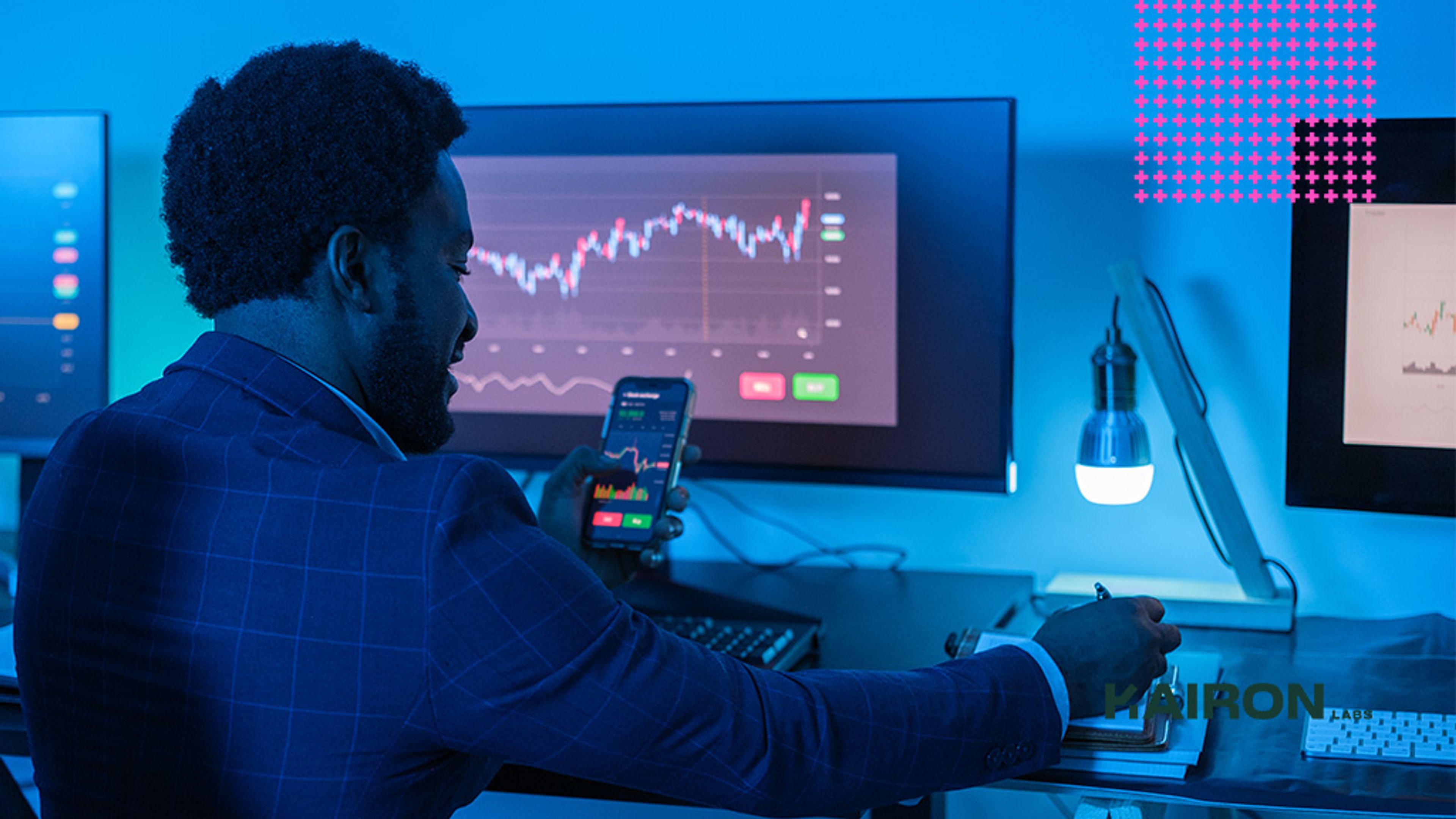
Understanding Market-Making Models in Crypto

Solana Staking ETFs: A Live Liquidity Stress Test for Every Founder
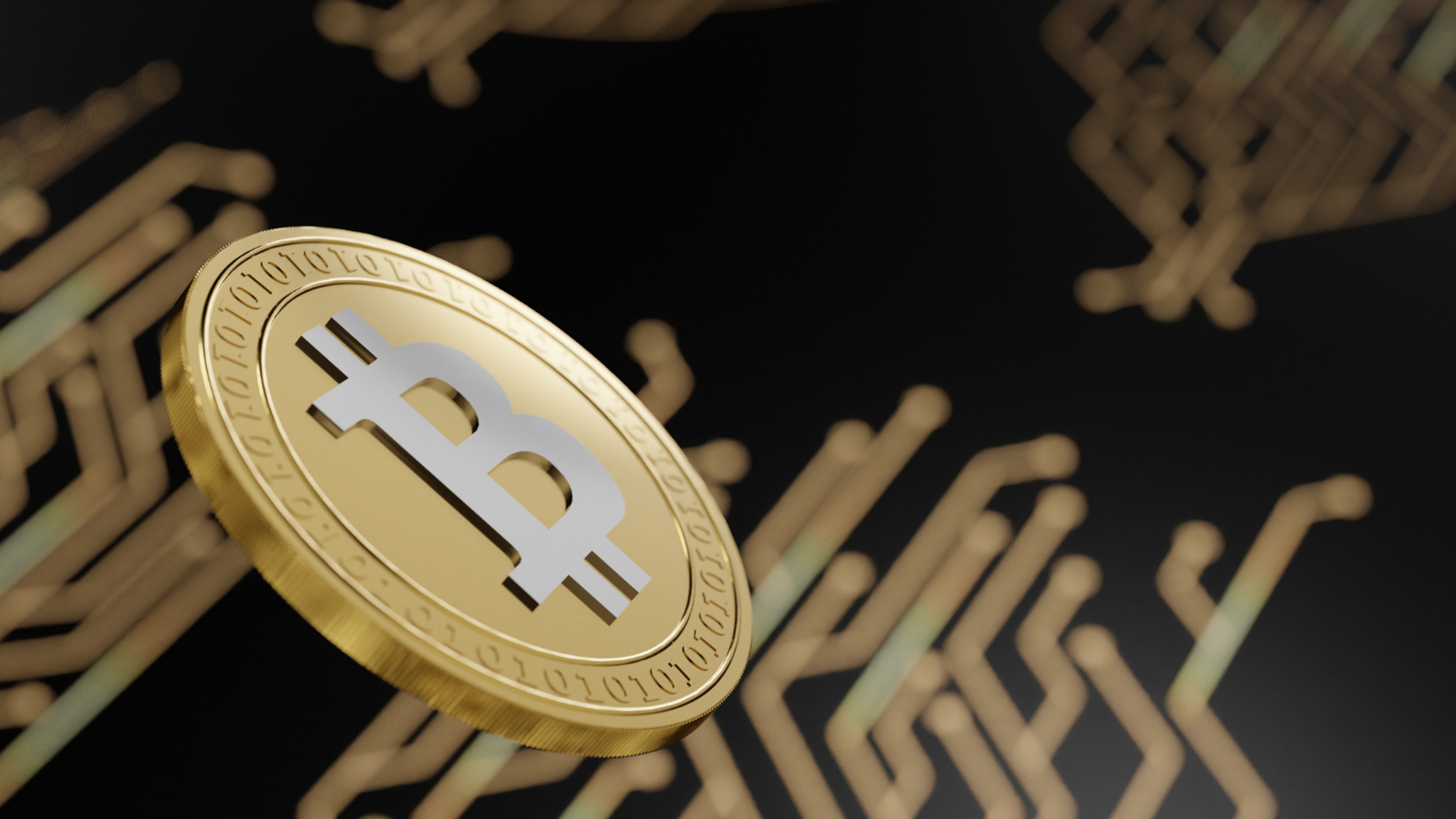
Launching a Token 101: Why is Liquidity Important?
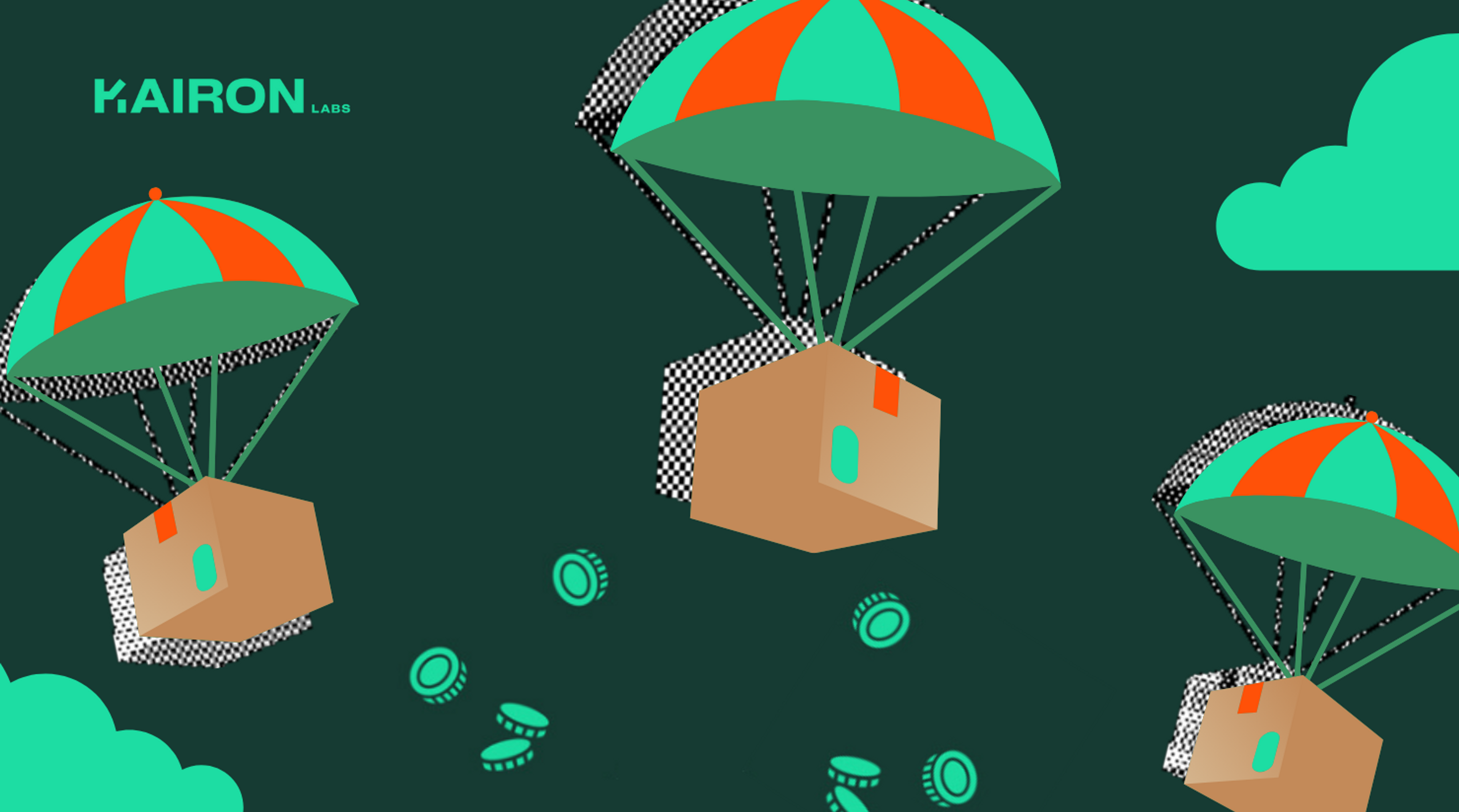
Airdrops and Retrodrops Decoded: A Comprehensive Guide

